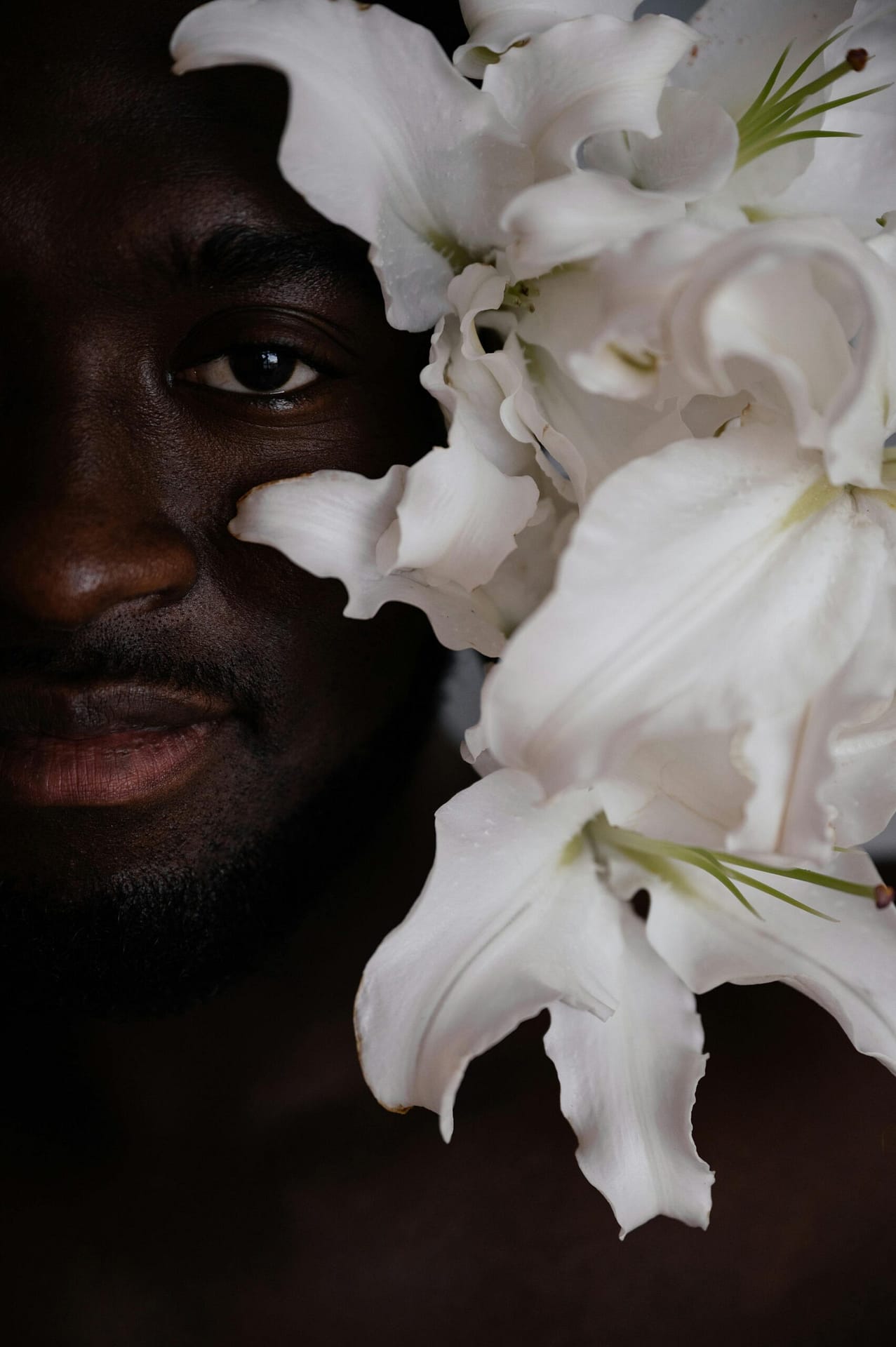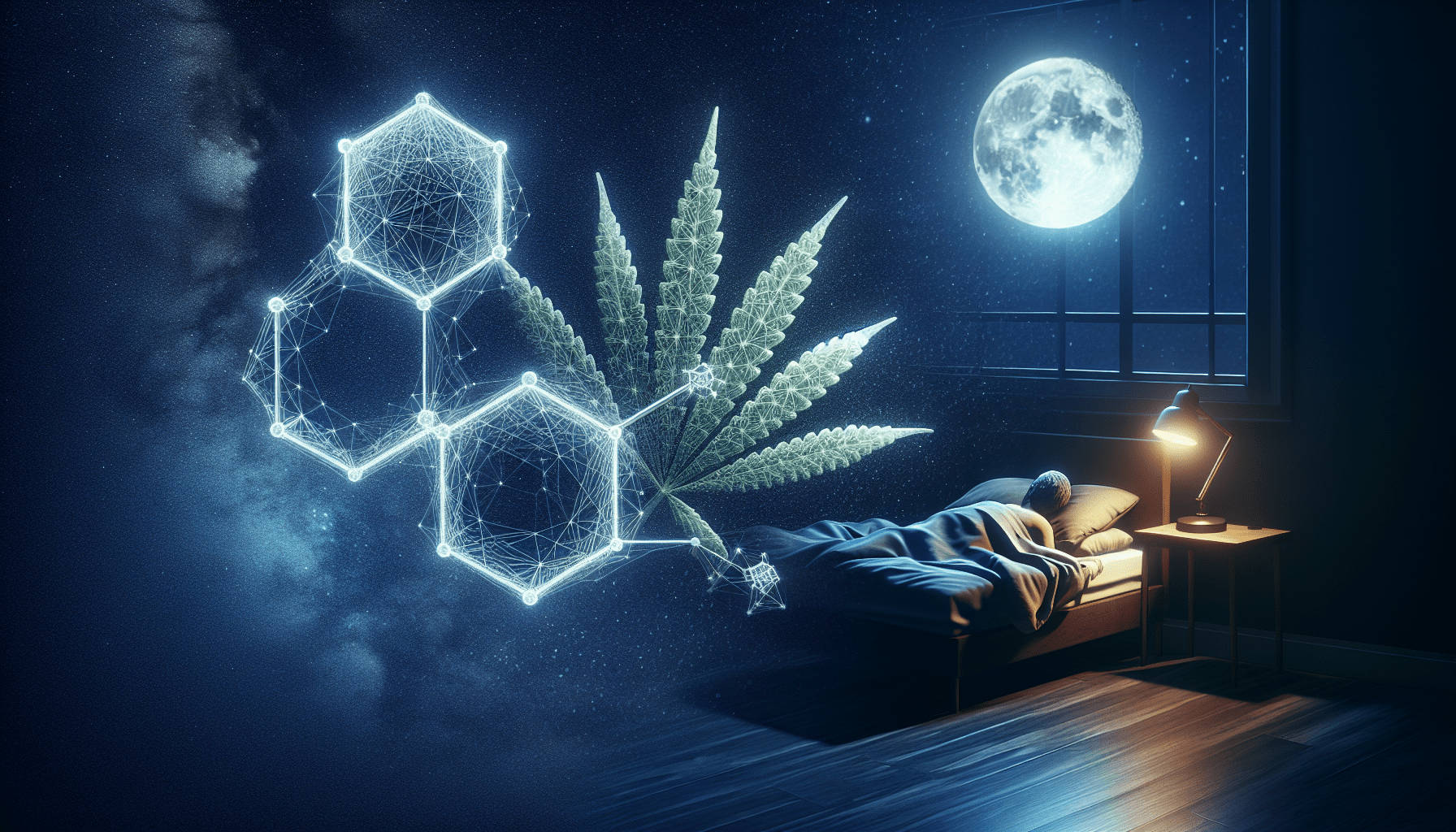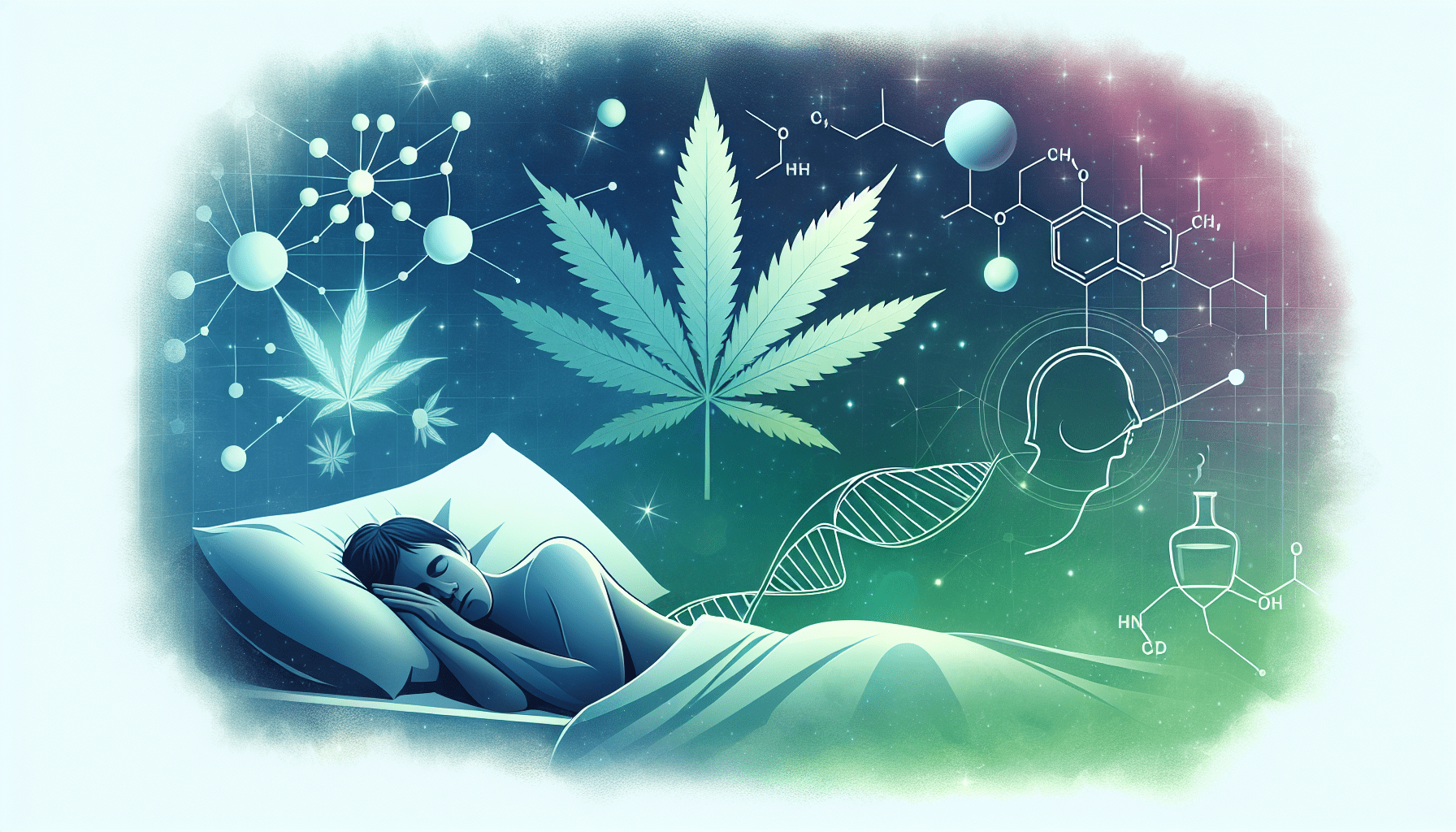Imagine finally getting a good night’s sleep after weeks of tossing and turning, all thanks to CBD. You’ve probably heard about the buzz surrounding CBD and its potential for helping with various ailments, including insomnia. But what does the research say? Is there solid evidence supporting the use of CBD for insomnia? In this article, we’ll explore the latest findings and shed light on the scientific research that might just have you sleeping like a baby again.

Clinical Studies on CBD for Insomnia
Insomnia is a common sleep disorder that affects millions of people worldwide. It can have a significant impact on your overall well-being and quality of life. Fortunately, there is growing interest in the potential therapeutic benefits of CBD (cannabidiol) for insomnia. Numerous clinical studies have been conducted to explore the effectiveness of CBD in improving sleep disturbances and promoting better sleep quality.
Study 1: Effectiveness of CBD for sleep disturbances
One study published in the Journal of Clinical Psychology examined the effects of CBD on sleep disturbances in a group of 72 adults. The participants were divided into two groups – one received CBD treatment, while the other received a placebo. The study found that the group receiving CBD experienced significant improvements in sleep quality compared to the placebo group. This suggests that CBD may be beneficial in reducing sleep disturbances associated with insomnia.
Study 2: Impact of CBD on sleep quality
Another study, published in the journal Frontiers in Pharmacology, investigated the impact of CBD on sleep quality in a group of 47 adults with insomnia. The participants were given CBD or a placebo for six weeks, and their sleep quality was assessed using various measures. The study found that the group receiving CBD reported significant improvements in sleep quality, including increased total sleep time and reduced sleep latency (the time it takes to fall asleep). These findings suggest that CBD may play a role in enhancing overall sleep quality.
Study 3: CBD as an alternative treatment for insomnia
A third study, published in the Permanente Journal, explored the use of CBD as an alternative treatment for insomnia. The study involved 72 adults with anxiety and insomnia, and they were given either CBD or placebo capsules daily for one month. The participants who received CBD reported significant improvements in sleep and reductions in anxiety symptoms compared to the placebo group. This study suggests that CBD may hold promise as an alternative therapeutic option for individuals with insomnia and anxiety.
Neurological Mechanisms of CBD for Insomnia
Understanding the neurological mechanisms through which CBD exerts its effects on insomnia is crucial in comprehending its potential as a treatment option. Several subheadings shed light on this aspect.
Subheading 1: CBD’s interaction with the endocannabinoid system
One of the primary ways CBD influences insomnia is by interacting with the endocannabinoid system (ECS) in the body. The ECS is responsible for regulating numerous physiological functions, including sleep. CBD interacts with cannabinoid receptors in the ECS, specifically CB1 receptors located in the brain, to modulate sleep-wake cycles and promote a more balanced sleep pattern.
Subheading 2: Influence of CBD on anxiety and stress
Anxiety and stress often contribute to the development and perpetuation of insomnia. CBD has been shown to have an anxiolytic (anti-anxiety) effect, which may indirectly improve sleep. By reducing anxiety and stress levels, CBD may help individuals achieve a state of relaxation that is conducive to falling asleep and staying asleep.
Subheading 3: CBD’s impact on sleep-wake cycles
CBD has also been found to modulate sleep-wake cycles by promoting wakefulness during the day and promoting sleep at night. It affects the sleep-wake cycle by interacting with receptors involved in the regulation of circadian rhythms, such as the serotonin receptor. By enhancing the body’s natural sleep-wake cycle, CBD may contribute to a more regulated and restful sleep pattern.
Safety and Side Effects of CBD for Insomnia
When considering any medication or treatment option for insomnia, it is essential to evaluate the safety and potential side effects. CBD has been widely regarded as safe and well-tolerated, making it an attractive option for those seeking a natural alternative to traditional sleep medications.
Subheading 1: CBD’s non-addictive nature
One of the primary advantages of CBD as a treatment for insomnia is its non-addictive nature. Unlike many prescription sleep aids, which can lead to dependence and withdrawal symptoms, CBD does not create a risk of addiction. This makes it a potentially safer long-term solution for managing insomnia.
Subheading 2: Minimal side effects of CBD
Clinical studies have consistently reported that CBD is generally well-tolerated, with minimal side effects. The most commonly reported side effects include mild fatigue, dry mouth, and gastrointestinal discomfort. However, these side effects are typically mild and transient, with the majority of users experiencing no adverse effects.
Subheading 3: Potential drug interactions
Although CBD is generally considered safe, it is crucial to note that it may interact with certain medications. CBD can inhibit the activity of liver enzymes responsible for metabolizing many pharmaceutical drugs, potentially leading to altered drug concentrations in the body. It is recommended to consult with a healthcare professional before combining CBD with any other medications to ensure there are no potential interactions.
Different Forms of CBD for Insomnia
CBD is available in various forms, each offering its unique advantages and considerations. Understanding these different forms can help you choose the most suitable option for your specific needs and preferences.
Subheading 1: CBD oil and tinctures
CBD oil and tinctures are among the most popular forms of CBD for insomnia. They are highly versatile and can be taken sublingually (under the tongue) for fast absorption or added to food and beverages. CBD oils and tinctures allow for precise dosage control and are known for their relatively rapid onset of effects.
Subheading 2: CBD capsules and edibles
CBD capsules and edibles provide a convenient and discreet way to incorporate CBD into your insomnia treatment routine. Capsules offer a standardized dosage, making them easy to incorporate into your daily regimen. Edibles, such as gummies or chocolates, provide a tasty and enjoyable way to consume CBD while experiencing its potential sleep benefits.
Subheading 3: CBD topical products
CBD topical products, such as creams, salves, and balms, are primarily used for targeted relief of pain and inflammation. While they may not directly influence sleep quality, they can be beneficial for individuals experiencing insomnia due to physical discomfort. Applying a CBD-infused topical product to the affected area can provide localized relief and promote relaxation, potentially leading to improved sleep.

Optimal CBD Dosage for Insomnia
Determining the optimal CBD dosage for insomnia can be a somewhat individualized process. Factors such as body weight, tolerance, and the severity of insomnia symptoms can influence the appropriate dosage. It is essential to start with a low dose and gradually increase as needed to find the optimal balance.
Subheading 1: Individual variations in CBD dosage
CBD affects individuals differently, and there is no one-size-fits-all dosage for insomnia. It is recommended to start with a low dosage, typically around 10-20mg, and assess its effects on sleep quality and insomnia symptoms. If needed, the dosage can be gradually increased until the desired effects are achieved.
Subheading 2: Recommendations from experts
While there are no specific dosage guidelines for CBD and insomnia, experts often suggest starting low and slowly titrating up if necessary. It is advisable to consult with a healthcare professional who can provide personalized recommendations based on your specific needs and health history.
Subheading 3: Importance of starting with low doses
Starting with a low CBD dosage is crucial for several reasons. It allows you to assess your individual response to CBD and minimize the risk of potential side effects. Additionally, starting low ensures that you find the lowest effective dose, as some individuals may find relief with lower doses, while others may require higher doses to achieve the desired sleep benefits.
CBD vs Other Sleep Medications
Comparing CBD to other sleep medications can help shed light on its potential advantages and benefits as an alternative treatment option for insomnia.
Subheading 1: Comparing CBD to benzodiazepines
Benzodiazepines are a class of prescription medications commonly used to treat insomnia. While they can be effective in promoting sleep, they come with several drawbacks. Benzodiazepines can be highly addictive, leading to dependence and withdrawal symptoms. They can also cause daytime drowsiness and impair cognitive function. Conversely, CBD offers a natural and non-addictive alternative that may provide similar sleep benefits without these drawbacks.
Subheading 2: CBD vs melatonin supplements
Melatonin is a hormone naturally produced by the body to regulate sleep-wake cycles. It is commonly used as a supplement to alleviate insomnia. While melatonin can be useful for certain individuals, its impact on sleep quality and duration may be limited. CBD, on the other hand, has been shown to not only improve sleep quality but also address underlying issues such as anxiety and stress that may contribute to insomnia.
Subheading 3: Benefits of using CBD over prescription sleep aids
CBD offers several advantages over prescription sleep aids. Firstly, it is generally well-tolerated with minimal side effects. Secondly, it is non-addictive, reducing the risk of dependence. Additionally, CBD has been reported to have a more favorable safety profile compared to many traditional sleep medications. Lastly, CBD may address both the symptoms and potential underlying causes of insomnia, making it a holistic and potentially more effective treatment option.

Personal Experiences with CBD for Insomnia
Personal experiences and testimonials can provide valuable insights into the real-world effectiveness of CBD for insomnia.
Subheading 1: Testimonials from CBD users
Many individuals have reported positive experiences with CBD for insomnia. They often mention improved sleep quality, reduced sleep disturbances, and greater overall relaxation. These testimonials provide anecdotal evidence of CBD’s potential efficacy and serve as a testament to its growing popularity for addressing sleep issues.
Subheading 2: Case studies on CBD’s effectiveness
Case studies have also explored the effectiveness of CBD for insomnia. These studies typically focus on specific individuals with insomnia and document their experiences and outcomes after using CBD. While case studies are not as scientifically rigorous as clinical trials, they provide valuable insight into potential benefits and help generate hypotheses for further research.
Subheading 3: Survey results on CBD and sleep improvement
Surveys and questionnaires have been conducted to gather data on the perceived effects of CBD on sleep improvement. These surveys often involve a large sample size and assess various factors, including sleep quality, insomnia symptoms, and overall satisfaction. Results consistently indicate a high rate of satisfaction among CBD users, further supporting its potential as an effective treatment for insomnia.
Legality and Regulation of CBD for Insomnia
Understanding the legal status and regulations surrounding CBD is crucial to ensure safe and reliable access to CBD products for insomnia treatment.
Subheading 1: Legal status of CBD in different countries
The legal status of CBD varies from country to country. In some countries, CBD may be fully legal for both medical and recreational use, while in others, it may be strictly regulated or even illegal. It is essential to familiarize yourself with the specific laws in your country or region to ensure compliance and access to legal CBD products.
Subheading 2: Regulations surrounding CBD products
Even in countries where CBD is legal, there are often regulations in place to ensure product safety and quality. These regulations may include requirements for manufacturing practices, testing, labeling, and marketing claims. It is advisable to purchase CBD products from reputable sources that adhere to these regulations, as they are more likely to provide a reliable and consistent product.
Subheading 3: Importance of purchasing from reputable sources
Purchasing CBD products from reputable sources is crucial to ensure product quality, safety, and efficacy. Reputable sources often provide detailed information about their products, including third-party testing results, ingredient lists, and recommended dosages. They employ strict quality control measures to ensure consistency and provide customer support to address any concerns or questions.

Future Research and Areas of Investigation
While the existing research on CBD for insomnia is promising, further research is needed to fully understand its potential and establish evidence-based guidelines for treatment.
Subheading 1: Studies exploring optimal CBD formulations
Future studies can examine different CBD formulations to identify the most effective delivery methods and dosages for insomnia. This research can help determine whether specific formulations, such as CBD combined with other natural sleep aids or herbs, can enhance its sleep-promoting effects.
Subheading 2: Research on long-term effects of CBD use
Long-term studies are needed to evaluate the safety and efficacy of CBD for insomnia over extended periods. These studies can assess potential tolerance, dependence, and any adverse effects that may emerge with prolonged use. Understanding the long-term effects of CBD will help establish guidelines for its appropriate and sustainable use.
Subheading 3: Investigating CBD’s impact on specific sleep disorders
While insomnia is a broad term encompassing various sleep disturbances, further research can focus on specific sleep disorders. Investigating how CBD specifically affects conditions such as sleep apnea, restless leg syndrome, or shift work sleep disorder can provide valuable insights into its potential as a targeted treatment for these conditions.
Conclusion
In conclusion, clinical studies support the potential therapeutic benefits of CBD for insomnia. Research suggests that CBD may improve sleep disturbances, enhance sleep quality, and serve as an alternative treatment option for individuals struggling with insomnia. CBD’s interaction with the endocannabinoid system, its impact on anxiety and stress, and its influence on sleep-wake cycles contribute to its potential effectiveness as a sleep aid. CBD is generally well-tolerated, with minimal side effects and a non-addictive nature. Different forms of CBD, such as oil/tinctures, capsules/edibles, and topicals, offer flexibility in treatment options. The optimal CBD dosage for insomnia may vary, but starting with low doses and consulting with healthcare professionals can guide the individualized approach. CBD offers advantages over other sleep medications, including benzodiazepines and melatonin supplements, and personal experiences and case studies further support its potential efficacy. The legality and regulation of CBD vary across different countries, emphasizing the importance of purchasing from reputable sources. Further research is needed on optimal formulations, long-term effects, and its impact on specific sleep disorders. Overall, CBD shows promise as a natural and holistic treatment for insomnia, and individuals are encouraged to speak with healthcare professionals to explore its potential benefits in their sleep journey.

